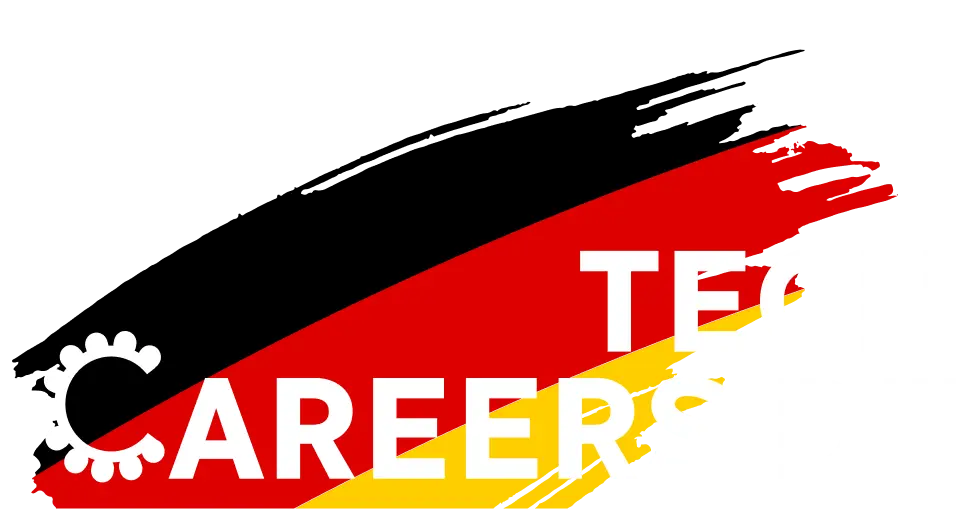Overview of the Data Developer Jobs in Germany
Germany’s robust economy and focus on digital transformation have created a thriving job market for data developers. These professionals are essential in managing, analyzing, and leveraging data to drive business decisions across various industries.
Data Developer Jobs Market Landscape
Responsibilities of Data Developer
Data developers play a crucial role in managing and analyzing data to support business objectives. Here are the primary responsibilities of a data developer:
1. Data Management
- Database Design: Designing and implementing database structures to store and organize data efficiently.
- Data Integration: Integrating data from various sources, ensuring consistency and reliability.
2. Data Processing
- ETL Processes: Developing and managing ETL (Extract, Transform, Load) processes to move data between systems.
- Data Cleaning: Ensuring data quality by cleaning and preprocessing data for analysis.
3. Data Analysis
- Data Modeling: Creating data models to represent complex data relationships.
- Analytics and Reporting: Generating reports and visualizations to provide insights to stakeholders.
4. Performance Optimization
- Query Optimization: Writing and optimizing complex SQL queries to enhance database performance.
- Performance Monitoring: Monitoring and tuning database performance to ensure efficient data retrieval and processing.
5. Security and Compliance
- Data Security: Implementing security measures to protect data from unauthorized access and breaches.
- Regulatory Compliance: Ensuring data management practices comply with relevant regulations and standards.
6. Collaboration and Communication
- Cross-Functional Collaboration: Working with data scientists, analysts, and other IT professionals to support data-driven projects.
- Stakeholder Communication: Communicating findings and recommendations to non-technical stakeholders.
Data developers are vital in transforming raw data into valuable insights. By effectively managing, processing, and analyzing data, they support informed decision-making and contribute to the success of their organizations.
Skills Required for Data Developer in Germany
- Database Management: Proficiency in SQL and NoSQL databases.
- Programming Languages: Strong skills in Python, R, Java, or Scala.
- Data Warehousing: Experience with ETL processes and tools like Apache Hadoop, Spark, and Kafka.
- Data Visualization: Ability to use tools like Tableau, Power BI, and D3.js.
- Analytical Thinking: Strong problem-solving skills to interpret complex data.
- Communication: Ability to convey technical information to non-technical stakeholders.
- Team Collaboration: Working effectively within cross-functional teams.
Data Developer Vacancies in Large German Companies
Germany offers numerous opportunities for data developers across a variety of large companies. Here are some of the top companies and the types of positions they offer:
- Location: Nationwide
- Role: SAP is a global leader in enterprise software and offers roles in data management, data analytics, and database administration. Positions often require skills in SQL, data warehousing, and business intelligence tools.
- Location: Munich, Berlin
- Role: Siemens focuses on industrial automation and smart infrastructure. Data developer roles here involve working with large-scale data processing, IoT data integration, and developing predictive analytics models.
- Location: Frankfurt
- Role: The bank hires data developers for developing and maintaining financial data systems, risk management models, and real-time data processing platforms.
- Location: Wolfsburg
- Role: In the automotive industry, Volkswagen employs data developers to work on vehicle data analytics, smart manufacturing processes, and customer data platforms.
- Location: Hamburg
- Role: Nordex, a leader in wind energy, seeks data developers to design, maintain, and optimize data systems for energy data management and digital transformation initiatives. Key skills include SQL, ETL processes, and data visualization tools like Tableau and Power BI.
Top German Cities to Find Data Developer Jobs
Berlin is Germany’s capital and a major tech hub. The city is home to numerous startups, tech companies, and large enterprises seeking data developers.
- Key Employers: SAP, Zalando, Delivery Hero, Siemens.
- Job Market: High demand for data developers in startups and established tech firms. The city’s vibrant tech scene offers numerous networking opportunities and tech events.
Munich is known for its strong economy and presence of multinational corporations.
- Key Employers: BMW, Allianz, Siemens, Infineon Technologies.
- Job Market: Robust opportunities in automotive software development, finance, and high-tech manufacturing, with a significant focus on data analytics and processing.
Hamburg is a major port city with a strong media, logistics, and tech industry.
- Key Employers: Otto Group, Airbus, Nordex Group.
- Job Market: Diverse opportunities in e-commerce, media, logistics, and renewable energy sectors, with a growing need for data analytics and data integration specialists.
Frankfurt is Germany’s financial capital, hosting many banks and financial institutions.
- Key Employers: Deutsche Bank, Commerzbank, European Central Bank.
- Job Market: High demand for data developers in the finance sector, focusing on financial data systems, risk management, and real-time data processing.
By leveraging these resources and focusing on key cities, data developers can effectively navigate the market for tech jobs in Germany and advance their careers in a dynamic and growing industry.
Data Developer Salary in Germany
The salary of a data developer in Germany varies based on experience, location, and the specific industry they work in. Here’s an overview of the typical salary ranges:
Junior Data Developers:
- Salary Range: €45,000 to €55,000 per year.
- Details: Entry-level positions typically offer lower salaries but provide opportunities for rapid growth and skill development.
Mid-level Data Developers:
- Salary Range: €55,000 to €75,000 per year.
- Details: Developers with 3-5 years of experience can expect to earn within this range, depending on their expertise and the complexity of their roles.
Senior Data Developers:
- Salary Range: €75,000 to €100,000+ per year.
- Details: Highly experienced data developers, often with specialized skills and significant responsibilities, can earn salaries at the upper end of this range.
Challenges and Opportunities in the Data Developer Job Market
Challenges
Rapid Technological Changes:
- Staying Updated: Data developers must continuously learn new tools and technologies, such as advancements in big data, AI, and machine learning. This can be demanding and requires a commitment to ongoing education.
Data Security and Privacy:
- Regulatory Compliance: Ensuring compliance with regulations such as GDPR is crucial. This involves implementing robust data security measures and staying informed about legal requirements.
High Competition:
- Job Market Saturation: As the demand for data developers grows, so does the competition. Candidates must differentiate themselves with unique skills and experience.
Complex Data Integration:
- Integrating Diverse Data Sources: Handling data from various sources and formats can be challenging, requiring expertise in different data integration tools and techniques.
Opportunities
High Demand:
- Growing Industries: Industries such as finance, healthcare, automotive, and e-commerce are increasingly reliant on data developers to drive decision-making and innovation.
Competitive Salaries:
- Attractive Compensation: Data developers can expect competitive salaries, especially in tech hubs like Berlin, Munich, and Frankfurt.
Remote Work Opportunities:
- Flexible Working Conditions: The increasing acceptance of remote work provides data developers with more flexibility and the ability to work for companies globally.
Innovation and Growth:
- Cutting-Edge Projects: Working in tech hubs offers exposure to innovative projects and technologies, enhancing career growth and professional development.
Tips for Finding a Data Developer Jobs in Germany
1. Optimize Your Resume and Portfolio
- Highlight Relevant Skills: Emphasize your proficiency in programming languages (e.g., Python, R, SQL), data tools (e.g., Hadoop, Spark), and experience with ETL processes and data warehousing.
- Showcase Projects: Include a portfolio with links to your GitHub profile or personal projects that demonstrate your data development skills.
2. Leverage Job Portals
- Specialized Job Sites.
- General Job Boards.
3. Network and Build Connections
- Join Professional Networks: Engage with industry professionals on LinkedIn and join groups related to data development.
- Attend Events: Participate in tech meetups, webinars, and conferences in Germany to meet potential employers and stay updated with industry trends.
4. Learn German
- Language Proficiency: While many tech jobs in Germany are available in English, proficiency in German can significantly enhance your job prospects and help you integrate better into the work environment.
5. Target Key Cities
- Tech Hubs: Focus on cities with strong tech ecosystems like Berlin, Munich, Frankfurt, Hamburg, and Stuttgart. These cities offer numerous opportunities and higher salaries.
6. Consider Remote Opportunities
- Remote Work: The rise of remote work has opened up more opportunities. Look for companies that offer remote positions, allowing you to work from anywhere in Germany or even globally.
7. Continuous Learning and Certification
- Upskill Regularly: Stay updated with the latest technologies and tools in data development. Consider earning certifications from platforms like Coursera, edX, or Udacity.
8. Customize Your Applications
- Tailor Each Application: Customize your resume and cover letter for each job application, highlighting the skills and experiences that match the job description.
9. Use Recruitment Agencies
- Specialized Agencies: Work with recruitment agencies that specialize in IT and tech jobs. They can help match you with suitable positions and provide valuable job search advice.
10. Prepare for Interviews
- Technical Interviews: Be ready for coding tests and technical interviews that assess your data development skills. Practice common data developer interview questions and problems.
By following these tips and leveraging the available resources, you can enhance your chances of finding a rewarding data developer job in Germany.


